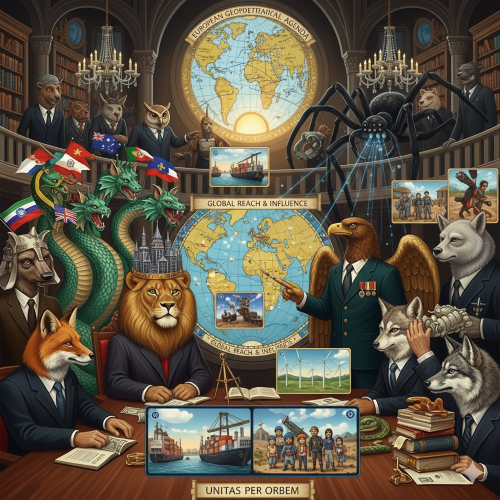How is Europe’s green transition driving new interest in Africa’s rare earth minerals, cobalt, and lithium reserves?

Europe's green transition is driving new interest in Africa's mineral reserves as it seeks to secure a stable and diversified supply of critical raw materials (CRMs) essential for renewable energy technologies.
This is a strategic response to Europe's heavy reliance on China, which currently dominates the processing and supply of these minerals.
The Geopolitical Imperative of the Green Transition
The European Union has set ambitious goals to become the world's first climate-neutral continent by 2050. This "European Green Deal" requires a massive shift from fossil fuels to clean energy, which in turn necessitates a huge supply of CRMs for technologies like electric vehicles, wind turbines, solar panels, and battery storage. Europe, however, has limited domestic reserves and is therefore highly dependent on imports. The demand for materials like lithium, cobalt, and rare earth minerals is projected to increase exponentially in the coming decades.
-
Dependence on China: Europe's reliance on China for the processing and refining of these minerals creates a significant strategic vulnerability. For example, while the Democratic Republic of Congo (DRC) is the world's leading producer of cobalt, accounting for over 70% of global supply, around 60% of that cobalt is processed in China. This single-source dependency leaves Europe's green transition susceptible to geopolitical tensions and supply chain disruptions.
-
Securing the Supply Chain: To mitigate this risk, European elites are pursuing a new "Raw Materials Diplomacy" aimed at diversifying their supply chains and establishing strategic partnerships with resource-rich African nations. This shift is codified in the EU's Critical Raw Materials Act, which sets ambitious targets for domestic sourcing, recycling, and, most importantly, strategic partnerships with third countries.
New Interest in Africa's CRMs
Africa is a central focus of Europe's new strategy due to its vast and largely untapped mineral wealth.
-
Cobalt and Lithium: The continent holds immense reserves of cobalt and lithium, which are key components of batteries for electric vehicles and energy storage. The DRC alone holds a near-monopolistic position in global cobalt production, and countries like Zimbabwe, Namibia, and Mali have significant lithium deposits. European investment in these countries is now being directed not just at extraction, but also at the development of infrastructure and processing facilities to bypass Chinese intermediaries. The Lobito Corridor project, for example, is a major initiative backed by Europe and the U.S. to upgrade a railway connecting the DRC and Zambia to an Angolan port, creating a direct route for minerals to bypass traditional Chinese-controlled networks.
-
Rare Earth Minerals: Rare earth minerals are also essential for wind turbines, electric vehicle motors, and other high-tech applications. Africa has significant reserves of these, with countries like South Africa and Malawi hosting large deposits. Europe's new strategy is leading to increased exploration and investment in these areas to reduce its almost complete reliance on Chinese supply.
The Neocolonial Challenge
While this new interest is presented as a "mutually beneficial partnership," critics argue that it risks repeating historical patterns of extractive neocolonialism.
-
Unequal Exchange: The primary concern is that Africa will continue to be a source of raw materials without benefiting from the higher-value activities of processing and manufacturing. While European officials talk about supporting local value addition, the reality is that the investments and trade agreements are designed to ensure a steady supply of unprocessed materials for European factories. This perpetuates a system where Africa captures only a small fraction of the final product's value.
-
Social and Environmental Costs: The rush for CRMs could also exacerbate existing social and environmental problems. Mining operations, even with new European regulations, can lead to deforestation, water contamination, and human rights issues, including the use of child labor in artisanal mining. The EU's push for "responsible sourcing" is often challenged by the desire to streamline the process and outcompete rivals, leading to a potential disconnect between policy and practice.
- Questions and Answers
- Opinion
- Motivational and Inspiring Story
- Technology
- True & Inspiring Quotes
- Live and Let live
- Focus
- Geopolitics
- Military-Arms/Equipment
- Ασφάλεια
- Economy/Economic
- Art
- Causes
- Crafts
- Dance
- Drinks
- Film/Movie
- Fitness
- Food
- Παιχνίδια
- Gardening
- Health
- Κεντρική Σελίδα
- Literature
- Music
- Networking
- άλλο
- Party
- Religion
- Shopping
- Sports
- Theater
- Health and Wellness
- News
- Culture

